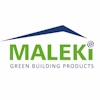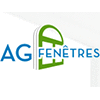- europages
- >
- UZŅĒMUMI - PIEGĀDĀTĀJI - PAKALPOJUMU SNIEDZĒJI
- >
- building material analysis
Rezultāti
Building material analysis - Ražotājs Izgatavotājs - Vācija
VācijaRažotājs/izgatavotājs
Lauka interaktīvā karte
Nozares visvairāk konsultētie uzņēmumi
Filtri
Rezultāti
Building material analysis - Ražotājs Izgatavotājs - VācijaRezultātu skaits
2 UzņēmumiUzņēmuma veids





